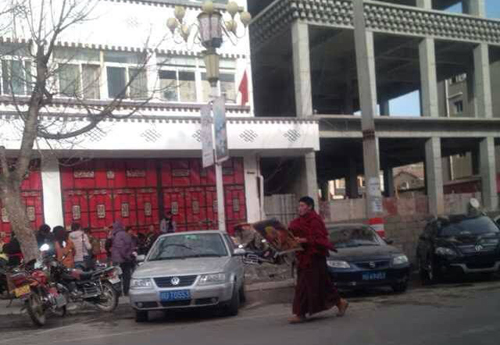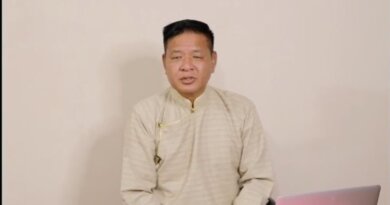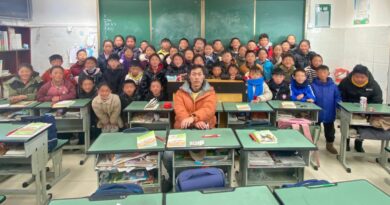Journalists on Beijing’s Orchestrated Tibet Tour Turns Blind Eye to Human Rights Violations, Repression in Tibet
By Tsering Choephel

Journalists from foreign media outlets,
invited to Tibet by China’s State Council Information Office (SCIO) in June 2023. Image: Xu Xiang/China SCIO.
DHARAMSALA, 10 Oct: In an attempt to whitewash China’s occupation and repressive rule in Tibet, Beijing has yet again organised an orchestrated tour in Tibet for nearly 30 journalists from 22 countries.
China’s state-run media Xinhua, said that they were taken on a tour in Lhasa and Nyingtri, where they purportedly interviewed local residents and officials, observing what was described as robust development and a diverse culture.
The journalists were taken to visit various places, including the Tibet Museum, Potala Palace, and Jokhang temple. A video on New China TV’s YouTube channel shows journalists being treated to colourful cultural shows, games, and home visits, akin to tourists enjoying leisure activities.
Marie-Noelle Waiane Kaltack of the Republic of Vanuatu, a journalist from the tour who is also part of a group of 81 journalists undergoing a four-month journalist training in Beijing, remarked, “One thing that impresses me here is how you preserve history by keeping every single detail of your history for future generations.”
Ali Abbas, a senior reporter from Pakistan, stated, “The Chinese government is spending a lot of money on development and social infrastructure here,” noting that people lead a very modern life.
Birat Gautam from Nepal, observing Tibetans in traditional costumes and shops with Tibetan language signage, concluded that the “traditional culture (of Tibet) is being inherited well.”
However, none of the visiting journalists addressed the Chinese Communist Party’s (CCP) rigorous efforts to dilute Tibetan identity through draconian laws and the imposition of ‘Xi’s thought’ study in schools, monasteries, and workplaces.
The CCP consistently conducts exchange programs for foreign reporters with the dual goals of whitewashing its draconian rules and policies and countering Western leadership in the world, particularly that of the United States.
These programs, often held in Chinese cities and ranging from several days to several months, include classes on China’s politics, economic system, development model, media, and foreign policy. Participants also engage in interviews with Chinese officials and entrepreneurs and internships at Chinese media outlets.
Reuters reported that China has invested around USD 6.6 billion since 2009 to bolster its global media presence, with a significant portion allocated to media between 2008 and 2018 amounting to $2.8 billion.
A study by Reporters Without Borders in 2019 highlighted China’s success in persuading thousands of journalists from emerging countries, especially those within the Belt and Road Initiative (BRI), to go on all-expenses-paid trips to Beijing and acting as CCP’s propaganda mouth piece.
In September, Beijing sponsored 22 journalists from 17 countries to visit East Turkestan, and state media Xinhua reported one journalist saying, “Absolutely, there is freedom of religion in Xinjiang. Anybody who does not say that is ignorant” ignoring the destruction and forces alterations of Mosques. Another journalist remarked, “It’s just like a Persian carpet, weaving differences into a beautiful picture.”
These journalists, under Beijing’s sponsorship and influence, turn a blind eye to the well-documented persecution of Uyghurs in East Turkestan, where UN human rights experts reported that up to one million Uyghur Muslims were forced into massive camps.
As reported by AP, recently, the US State Department released a 58-page report detailing Beijing’s tactics for shaping public opinion, including buying content, creating fake personas to spread its message, and using repression to silence unfavourable accounts.
Jamie Rubin, head of The Global Engagement Center, a State Department agency has said in the report that “Unchecked, the (Chinese government’s) information manipulation could in many parts of the world diminish freedom to express views critical of Beijing.”






